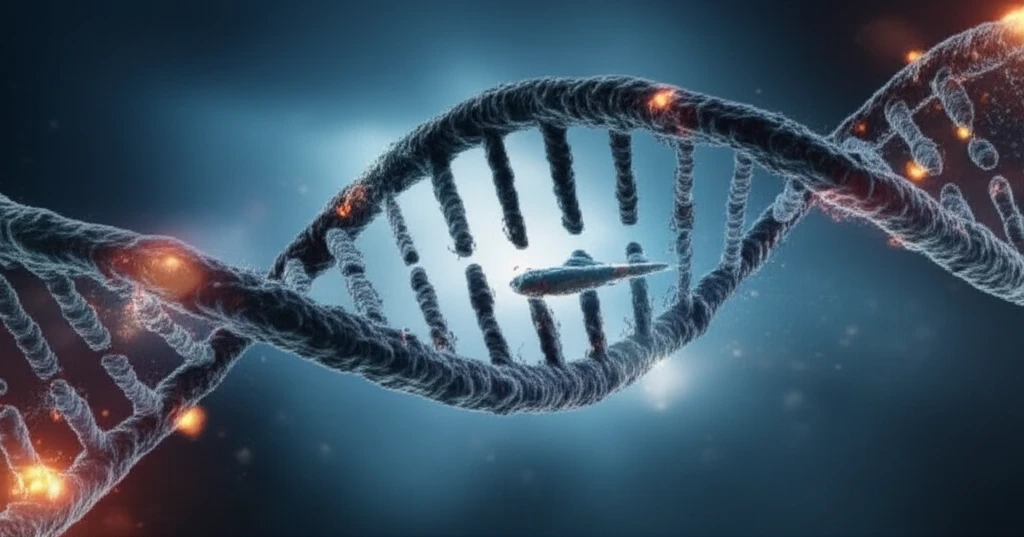
Decoding Immunity: How Ancient Sea Creatures Could Revolutionize Modern Medicine
"Unlocking the secrets of the amphioxus immune system may pave the way for groundbreaking treatments for autoimmune diseases and cancer."
Imagine a world where autoimmune diseases are easily managed, and cancer treatments are more effective and less toxic. While it sounds like science fiction, researchers are turning to an unlikely source to make this a reality: the amphioxus, a humble marine creature that holds clues to the origins of our immune system.
For decades, scientists have been studying the human immune system, yet many questions remain unanswered. The amphioxus, a primitive chordate that resembles a small fish, offers a unique window into the evolutionary history of immunity. By understanding how these creatures defend themselves against pathogens, we can gain valuable insights into the development and function of our own immune defenses.
Recent studies have focused on a specific protein within the amphioxus, protein kinase C (PKC), which plays a crucial role in immune responses. The unique structure of PKC in amphioxus, particularly a region known as the V3 domain, suggests an evolutionary mechanism that could revolutionize our understanding of how immunity evolved and how we can harness its power to fight disease.
Why the Amphioxus? Uncovering Immunity's Ancient Secrets

The amphioxus, or Branchiostoma belcheri, isn't just any sea creature. It's a basal chordate, meaning it sits at the evolutionary crossroads between invertebrates and vertebrates. This makes it an invaluable model for understanding the origins of adaptive immunity—the sophisticated defense system that allows us to recognize and remember specific pathogens.
- Evolutionary Insights: The amphioxus bridges the gap between innate and adaptive immunity, providing clues to how these systems evolved.
- Simpler System: Its less complex immune system makes it easier to study basic immune mechanisms.
- Genetic Treasure: The amphioxus genome contains ancestral versions of key immune genes.
The Future of Immunity: From Sea Creature to Medicine
The journey from studying the amphioxus to developing new medical treatments is a long one, but the potential rewards are immense. As researchers continue to unravel the secrets of this ancient creature's immune system, we can expect to see new strategies for preventing and treating diseases that plague humanity. The amphioxus may hold the key to unlocking a future where our immune systems are stronger, more adaptable, and better equipped to protect us from the ever-evolving threats we face.
